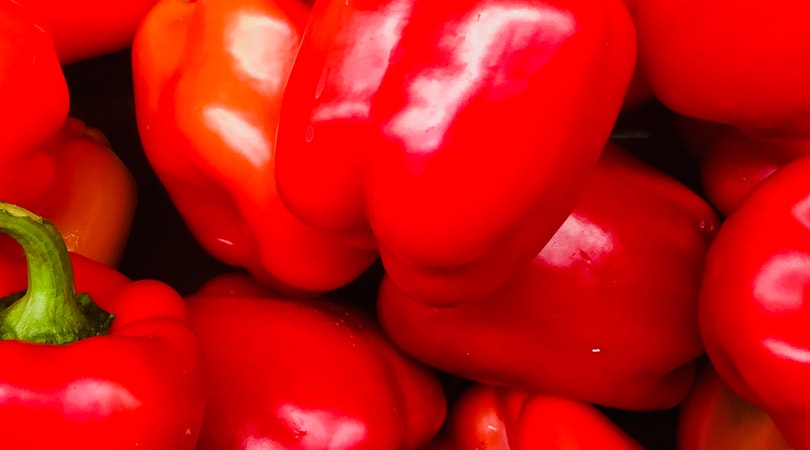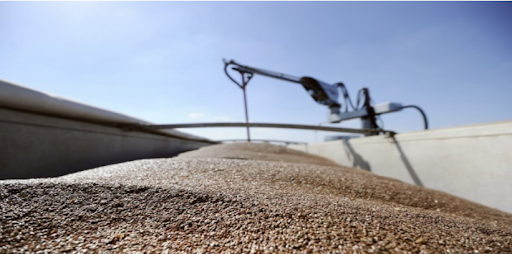Farming Businesses
How to Start Pepper Farming in Nigeria

In this article, we will be talking about how to start a profitable pepper farming in Nigeria. Pepper is a garden-variety agricultural farming that has been raking a lot of money for agribusiness in the country. The plant is very common in most Nigerian homes, and this has created a good business venture.
If you are interested in starting pepper farming, the interesting news is that Nigeria is the leading producer of pepper in Africa. They are followed in the continent by Ghana as China is the world’s main producer. This fact goes to show how pepper farming is productive in the country.
On the off chance that you are on thoughts of how to get started, then this article will be helpful. Read this piece to that last punctuation mark as we will talk about what’s involved in getting into the business of pepper farming in Nigeria.
Is Pepper Farming Profitable?
After what we have said so far, you can depict that this farming business is rewarding – highly profitable. Pepper farming is productive in the sense that you plant one seed to reap in excess of 100 peppers. You can keep collecting pepper for more than 3 months after the first harvest. In Nigeria, the produce is very marketable in the southern parts where the demands for it are very high.
So there is a lot of gain in it if you sell to places like Lagos, Port Harcourt, etc.
How to Start Pepper Farming in Nigeria
Certainly, there is a need for a guide on how to get started with pepper farming. This will give you the roadmap for the whole process involved. Here is the rundown guide on how to start pepper farming in Nigeria;
1. Prepare your Farmland
Let us look at how to get your site set for pepper planting. Preparation of your farmland before planting your pepper is very important. Firstly, you need to meet the soil requirement that is ideal for the type of pepper you wish to plant. Typically, pepper requires a warm environment and well-drained sandy-loamy soil.
Ideal soil dampness and pH should also be considered in determining which soil to host your pepper plants. Also, note that pepper does not grow well on antacid soil. On the off chance that you don’t have acquired or purchased farmland, you may rent the farmland. This will help to reduce the expenses of buying a new one.
You should also look for greenlight technology, which turns out incredible for pepper farming. However, a few blends of these practices are equipped for creating equivalent outcomes like this technology. Another thing is to ensure you have a good supply of water for your farmland.
To work better, drip Irrigation is suggested for your pepper farming. Weeding, consuming, and furrowing in pepper farming should be carried out on the site before the planting is done. Soil richness can be augmented using natural compost; poultry defecation, pig excrement, or manure.
This can be done by spreading them on the farmland for seven days prior to making beds for the pepper.
2. Pepper Species in Nigeria
There are numerous sorts of pepper; they are sorted by their origin and also by climatic conditions. The following are those Peppers that is very common to use for your plantation;
A. Atarodo
This type of pepper seems to be hotter in taste, and that has made a lot of people always an option for them. Atarodo is likewise one of the commonest pepper in the country; a great deal of people considers the more modest ones to the larger ones because of its hot nature.
B. Bell or Sweet Pepper
Sweet pepper farming is one of the most profitable specie of pepper in the country. The pepper most likely does well in screen houses under irrigation systems, because it helps to minimize exposure to stress conditions that may a reduction in the yield. The value of sweet peppers can not be underestimated and this has made most farmers to be growing the specie now due to its value esteem.
The principal use of this type of pepper is for the shading of food, particularly fried rice. And furthermore generally used in salad ingredients and in the improvement of other food products. On the whole, the price of sweet pepper is more than other peppers on the lookout.
Other types of pepper include:
C. Atawere (bird pepper)
D. Sombo (red pepper)
E. Tatashe
3. Nursing and Planting of Pepper
In the wake of obtaining land for your pepper farming in Nigeria, the next thing should be to get it set for your farming. This involves clearing the land and making beds on it. Tilling of the soil and spraying of insecticides in other to oust any bug that may pose a threat to the yield of your farm produce.
You should also supply the farm beds with manure, which should be natural excrement and could be pig, cow, or poultry manure. On how to plant the pepper, ensure to use good soil; pepper mostly performs well in sandy topsoil soil that is rich in natural compost. When planting, the distance of the bed ought to be 1m long and the column 1m too.
Also, it is preferable to hybrid seeds since they are now treated against pests and diseases. Furthermore, pepper is not a plant that will take longer to grow, but it requires not many months before they are developed for harvest. Get a nursery plate topped off with loam soil blended in with compost manures.
Spread the pepper on top and afterward mulch the plate. In the event that you don’t have a nursery plate, you can utilize plastic rubbers or concrete packs with a wide mouth. They will still work the same way
4. Germination of Peppers
It normally takes a week for the pepper to germinate. Most pepper seeds sprout at this rate and at a temperature of 70-80 degrees F. This relies on the type of pepper that you planted also note that the germination for hot peppers can be delayed. In order to avoid this and make it fast, ensure to cover the nursery with a straight material and cautiously remove it when the pepper seed begins growing.
5. Transferring your Pepper Seedlings
In pepper farming, the seedlings ought to be relocated to the farm for 8 -10 weeks in the wake of planting in a nursery. After transferring the nursed plants, ensure water the beds properly. Your beds ought to be near the nursery to save the existence of the pepper seedlings.
Contingent upon the sizes and the types of pepper planted, the distance between them ought to be 12-18 inches; beds ought to be raised to around 10 inches high.
6. Weeding and Pests Control
To enable your pepper to grow properly; always get rid of weeds and pests. Weeding ought to be done twice prior to planting them. Try not to allow these unwanted plants due to the fact that they convey irritations and diseases. They can spread parasites and infection to your pepper plantation.
7. Disease Control in Pepper Farming
Despite the fact that there are pepper seeds that are not prone to pests and diseases, however, it is important to set up measures to control these irritations. Also, you have to practice safety precautions in order to prevent them. Try not to work on the farm after rainfall as microorganisms can undoubtedly be conveyed about in a stand-by body.
A great many people are doing pepper cultivating in greenhouses which is the best, but it is very expensive. Read our guide on how to start fumigation business in Nigeria.
8. Staking in Pepper Plants
Staking is a way of supporting a fully grown pepper plant with a stick or pillar so as prevent them from falling. It is vital to stake them since they expand in weight as they grow much bigger and bear fruits. Wood and ropes are the two most preferred materials to use and stake your pepper.
Try not to utilize wire or hefty rope it can hack the pepper plant bit by bit until it interferes with them or cut the stems.
9. Harvesting and Gathering Pepper
The important thing to note on pepper harvest is that it is done before they are fully ripped; since they can keep aging after reaping. For business purposes, it is prudent that you keep gathering the pepper on the grounds that the more you collect pepper before maturity the more they keep fruiting.
Looking at how long it will take to be ready for harvest, varieties like hot pepper require around 150 days to be fully grown. Harvest and collection of the pepper are done by confining the pepper from the parent plant by hand. They are not difficult to cut so there will not be any requirement for you to drag them or use a mechanical tool.
10. Profits in Pepper Farming
The first step to making profits from your pepper farming in Nigeria is to get your customers (those that will patronize you) ready before it is time for harvesting. You can do this by meeting pepper sellers in the local markets around you. Tell them you have a pepper farm and you want to be sold for a better price.
This will convince them to be your customer. Another way you can make profits (more money) from your pepper farming business is to consider selling pepper to your local communities too especially Nigerian to want to celebrate birthdays, wedding anniversaries, naming ceremonies, and more.
You can also make money from your pepper farming by exporting your pepper. There are so many countries that need our species of pepper. You can export pepper to these countries and make huge profits from it.
Why should You consider Pepper Farming?
Complementing the last paragraph, there is much to gain from the pepper farming business in Nigeria. Regardless of the way that pepper is developed locally, you can start on the low and thereafter develop it to a large plantation. Also, ensure to look at the farm maintenance before you start increasing the size of your farm.
Unlike other farming like cassava, water leaf, etc., pepper farming needs criticality in maintaining to ensure the best outcome. After reading all these about pepper farming, it is very vital for individuals and entrepreneurs to go into the farming business and hope to get good returns on investment in the end.
So far in this article, we delineated on how to start pepper farming in Nigeria. We also shed light on how profitable the farming business is in the country.
Conclusion
How to plant pepper was also covered in this write-up. We believe you now have a comprehensive guide on how to get started with the farming business in Nigeria. Any questions about this article? Let us know and we will try our best to answer as soon as possible.
Recommended:
- How to Become a Millionaire in Nigeria
- How to Start Pepper Business in Nigeria
- How to Start Scent Leaf Farming in Nigeria
- How to Start Foodstuff Business in Nigeria
- The 10 Richest Farmers in Nigeria
📡Join Our Social Media Channels:
Facebook: theinfoWorth
YouTube: Ralph Finance









